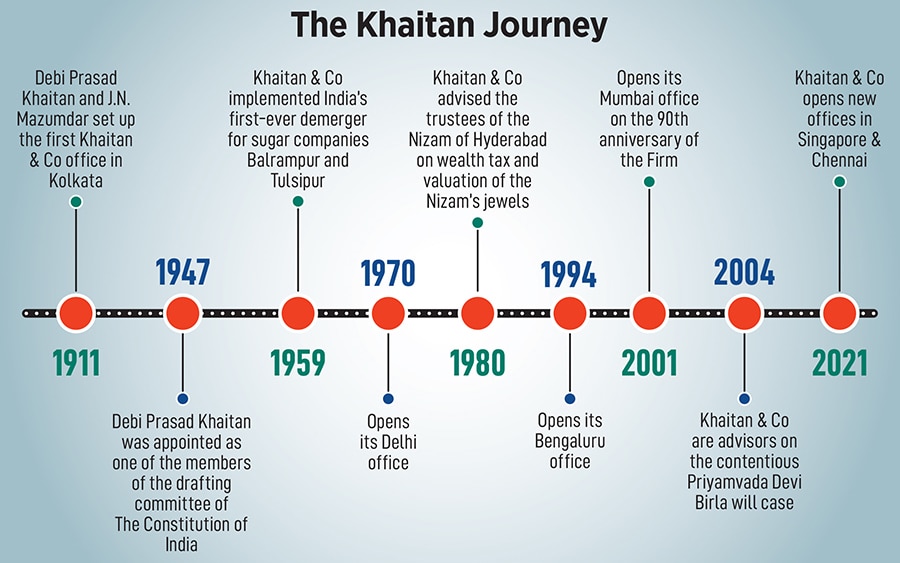
From the Tata Group to Flipkart and Fortis, how Khaitan & Co became the one-stop legal powerhouse for India Inc
The company that started with a regional office in Kolkata is now among India's largest full-service law firms with over Rs 1,100 crore in revenues
 Haigreve, Senior Partner at Khaitan & Co.
Image: Arpit Jain for Forbes India
Haigreve, Senior Partner at Khaitan & Co.
Image: Arpit Jain for Forbes India
If it wasn’t for a British prisoner stuck behind bars at an Indian prison during the colonial era, Haigreve Khaitan’s destiny would’ve been a little different.
It was sometime in the late 1800s that his great grandfather, a superintendent of jails, was casually chatting with a British prisoner about life’s dilemmas and his children’s education, that he offered him some wise counsel.
“My great-grandfather had seven sons, and he didn't know what to get the sons to do. That's when the prisoner seeded the idea that, at some point, India would become independent and business and economy would develop,” Khaitan, a senior partner at Khaitan & Co, tells Forbes India. “There would be a need for Indian lawyers. And he advised my great grandfather to get some of his children to take up the legal profession.”
The rest, as they say, is history. By the early 1900s, four Khaitan brothers had graduated in law, and Debi Prasad Khaitan set the foundation of what would go on to become Khaitan & Co in Kolkata in 1911, the year the British shifted the capital from Kolkata to New Delhi. Debi Prasad was soon joined by three of his brothers. “One was an independent barrister, who was a counsel, but otherwise three of them were part of the firm,” Khaitan says. “True Indian firms didn't exist then. So, it was a real opportunity to create that Indian firm.”
Today, Khaitan & Co is amongst India’s largest full-service law firms with over 1,000 professionals of which 240 are partners, the highest in the country. “That makes us the largest partnership in terms of law firms in India, which also is a unique model in how widely distributed the equity of the firm itself is,” says Khaitan, a senior partner at the firm. The law firm, with revenues north of Rs1,100 crore, has a presence across Bengaluru, Chennai, Delhi, Mumbai, and Kolkata, and has also set up a practice in Singapore in 2021, as Indian companies make a beeline to shift their head offices to the South Asian neighbourhood.











